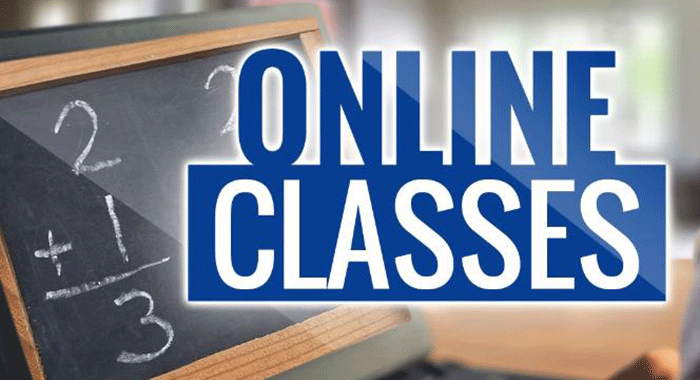The Ministry of Education has begun preparing lessons for online delivery, as schools in St. Vincent and the Grenadines (SVG) are to remain closed for at least two weeks after the Easter break.
Minister of Education St. Clair Jimmy Prince told Parliament Tuesday night that experts have been saying that more technology has to be used in the classroom.
“This, I think, is going to provide for us, an excellent opportunity for us to test these methodologies,” he said of the COVID-19 pandemic.
Prince told the national assembly that his government has already started this process and students are eager to access the various digital platform provided mainly by the Curriculum Development Unit.
The minister said he has been advised that 1,200 students have been accessing the Caribbean Primary Exit Assessment (CPEA) online platform daily.
“So there is buy-in by the students themselves to use the platforms which the ministry is providing.”
A national approach has been adopted and this requires collaboration among the major stakeholders, Prince said.
He said that when schools were closed one week early ahead of the Easter break, principals were advised to assign to students simple revision exercises that could be drawn from the text books and projects that could be done using materials around the home.
“It was felt that students should be allowed to enjoy the scheduled two-week break from school while the educators make additional preparations in the event that school did not open at the expected time.”
The minister said it was also agreed that using a multi-pronged approach to cater to students’ learning outside school was critical.
“In addition, the plan will be rolled out based on the immediate, the short-term needs, the medium term and the long term,” Prince said, adding that emphasis will be placed on the immediate.
Preparation will be made first for students writing exams at the end of the academics years, that is, Grade 6 and Form 5.
“Subsequently, provisions will be made for the other grades,” he said.
The ministry is preparing to use various modes and media to reach students while schools remain closed. These include online platforms, such as YouTube, Zoom, Google Classrooms, Microsoft teams, notes master, television and radio.
“Of course we have been meeting with the [telecommunications] providers, Digicel and FLOW in order to partner with them to get these platforms up and running and I am pleased to say that access to these platforms through FLOW and Digicel will be free to the students.”
Prince said that lessons have been prepared to share with student sequentially through online platforms.
Arrangements were made with Digicel, the Agency for Public Information and the Education Media Unit to have these lessons recorded, edited and shared.
Further, plans are being made to train teachers to create their own videos, which they would then send to a central editing house for final review and uploading for students’ access.
He said that a station would be set up at the Curriculum Development Unit where teachers will do their recordings and transmit them for use of students across the country.
“Consensus was reached for a suitable online platform for mass education of students following a review of a variety and these,” the minister said, adding that the OECS Curriculum Unit has strongly recommended the use of Notesmaster and Microsoft Teams.
“Education officers have been oriented as to how these platforms operate,” Prince said, adding that the University of the West Indies Open Campus has been training teachers to deliver the service online.
The minister said he was pleased to say that 200 teachers have been trained and 200 more will begin training this week.
All of these teachers have volunteered to undergo this training.
“So I guess there is buy-in by the teaching staff of these schools to train and then to deliver their services.”
A special plan will be put in place for students with special needs and physical education is being contemplated as part of the programme.
Handheld devices are important for the delivery of these services, Prince said, adding that this is why the government has allocated EC$4 million allocated for the purchases over 12,000 tablets, mainly for secondary school and Grade 6 students.
In the interim, students who do not currently have access to devices can pick up printed materials through their schools, the education minister said.
“The Ministry of Education is now faced with an opportunity amidst the challenge of shifting from face-to-face engagement in a physical classroom to that of a virtual classroom and students will now be able to continue their learning from the safety of their homes, as is happening now, because schools are closed,” Prince told Parliament.







They could of been doing this for the Grenadine children years ago, but the revolution never reached there.
SVG is sadly years behind in everything and, the obnoxious Gonsalves regime doesn’t mind that. How do we cheer this good news on when we know it will only last a few days? Then, nobody will know where the funding went to etc. Our current situation will expose the many shortcomings of the ruling […]. Why do our people have to accept all this […]? Don’t we love our children in SVG? Face reality.